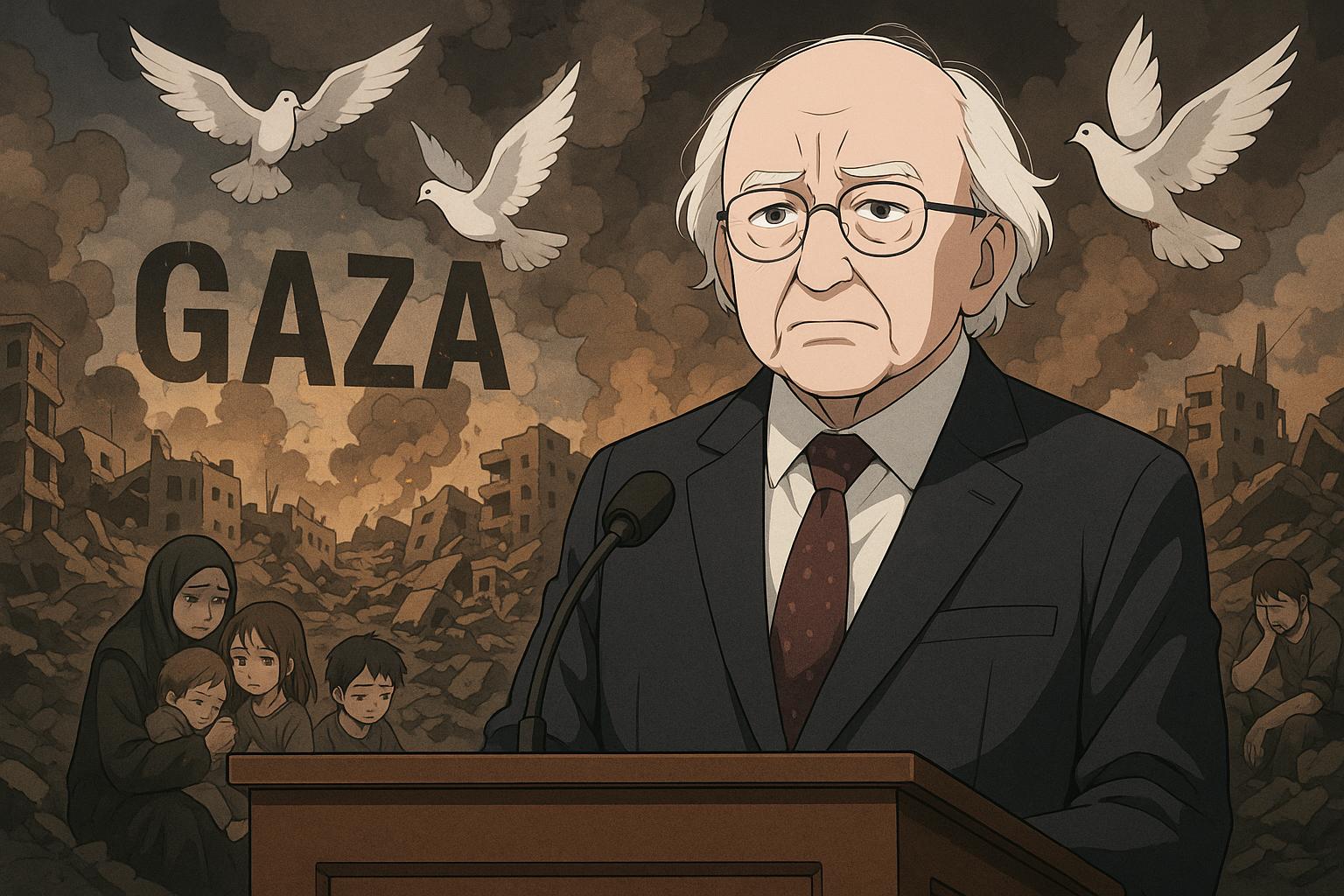President Michael D. Higgins recently asserted that accusations against those who criticise Israeli Prime Minister Benjamin Netanyahu's policies as "antisemitic" amount to a “slander.” Speaking at the Bord Bia Bloom event in Dublin, he lamented the prevalence of such allegations, stating that they have been weaponised against the Republic and individuals, including himself. This rhetorical stance reflects a broader narrative in which Higgins has been vocal about Ireland's position regarding Israel, particularly in light of the humanitarian crisis in Gaza.
Higgins expressed deep concern over the ongoing suffering in Gaza, where he noted that more than 81% of the population has been displaced amid escalating violence. He highlighted that many have been forced into temporary shelters that have themselves become targets, compounding the tragedy of their displacement. “Their hospitals have been bombed,” he emphasised, painting a stark picture of the humanitarian toll. Reaffirming his past visit to Gaza in 2006, he spoke poignantly about the region's bakeries as vital cultural and economic fixtures, marking the interconnectedness of community and survival amidst conflict.
The President also critiqued the Israeli and US-backed Gaza Humanitarian Foundation, characterising it as “an entirely unaccountable body.” His comments came shortly after the resignation of its American executive director, Jake Wood, who reportedly left due to constraints on the foundation's operational independence. Higgins questioned the transparency of the aid being provided, suggesting that the distribution of branded products to those in need could obscure genuine humanitarian efforts, instead aiming to enhance future private sector opportunities.
The broader implications of Higgins' statements come as Israel's foreign representatives have made charged remarks accusing Ireland of antisemitism. Higgins categorically rejected this conflation of criticism with prejudice, arguing that such claims are not only unfounded but also serve to undermine legitimate discourse on critical human rights issues. He emphasised the importance of reframing these discussions, stating, “The idea that propaganda can pay against Ireland is now active in the United States,” where potential investors are reportedly warned of Ireland's stance towards Israel.
In a recent call to action directed at the UN General Assembly, Higgins urged immediate humanitarian aid for Gaza, highlighting the Assembly's powers to intervene when the Security Council fails to act. He firmly believes that now is the time for the international community to prioritise food, medical aid, and water access. Through such statements, Higgins continues to affirm his commitment to advocating for international law and human rights, illustrating the intricacies of Ireland's diplomatic positioning in the Middle East.
The ongoing tension over Higgins' remarks signals a critical juncture in the discussion surrounding antisemitism and criticisms of Israel, highlighting the challenges faced by leaders navigating these sensitive geopolitical landscapes. With growing scrutiny on his planned address at the upcoming Holocaust Memorial Day, where concerns have already been raised about politicising historical tragedies, Higgins remains a polarising figure. The discourse surrounding his views underscores a delicate balance between recognising legitimate concerns regarding antisemitism and maintaining an open critique of state policies that may breach international legal standards.
As these discussions unfold, the implications for Irish diplomacy and international perception are significant, with Higgins' consistent calls for humanitarian intervention and adherence to international law serving as a poignant reminder of the responsibilities nations have towards upholding human rights in the face of geopolitical strife.
Reference Map:
- Paragraph 1 – [1], [2]
- Paragraph 2 – [1], [3]
- Paragraph 3 – [1], [5], [6]
- Paragraph 4 – [1], [7]
- Paragraph 5 – [2], [4]
Source: Noah Wire Services
